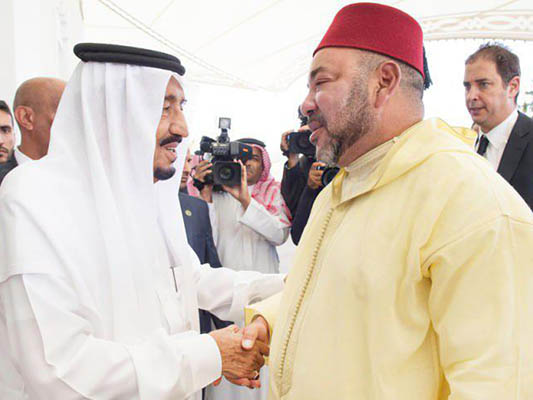Sabah Zangneh, who is also a senior political commentator, has, in an interview with the Persian-language Arman-e Emrooz daily, weighed in on the recent decision by Morocco to sever its ties with Iran. Highlights of the interview follow.
Zanganeh: The Polisario Front fought in the desert belonging to its rivals, and the disputes between the front and Mauritania were followed by a compromise between the two sides. Morocco annexed part of the desert to its territory, which led to divisions between Morocco and two of its neighbours, namely Mauritania and Algeria. The Polisario Front is not headquartered in Iran, but in Algeria. Unfortunately, Morocco is looking at untrue information which has nothing to do with reality and is unfounded. After the victory of the 1979 Islamic Revolution, Iran had allowed the front to open an office in the country, but the office was closed three decades ago. Iran and Morocco have had very normal and growing relations ever since. Of course, Morocco had severed its relations with Iran once again before under the pretext of promoting Shiism. The mission of Iran’s ambassador to Rabat ended two weeks ago, and the Iranian Foreign Ministry was looking for a new ambassador. So, Iran’s ex-ambassador is not present in Rabat now; he is in Iran.
Arman: With what degree of certainty can we say that Saudi Arabia is behind Morocco’s severance of ties with Iran?
Zanganeh: Both this time and the previous time that Morocco broke its relations with Iran, Saudi Arabia was behind it all. Riyadh led by Washington seeks to create a negative atmosphere against Iran. The Moroccan government, too, was entrapped by the Saudi net in some cases, but got to realize the reality after some time and restored its relations with Iran. King Hassan always said Saudi Arabia has no conflict of interests with Iran because Riyadh has neither harmed Iran, nor does it have differences with Tehran. Therefore, Saudi Arabia does not want negative relations with Iran by any means. This general policy can hold. But the young Saudi crown prince and other Saudi officials are unfortunately seeking to sow discord and promote Iranophobia in the region. They are moving on the path of US and Israeli policies against Iran, so much so that bin Salman travelled to Paris in recent weeks and sat down with Saad Hariri as well as King Mohammad VI. Some experts on regional issues regard the meeting as an effort by bin Salman to mobilise countries in order to affect relations with Iran. So, it is not unlikely that Arab countries, provoked by Saudi Arabia, follow Morocco’s lead and sever their relations with Iran under some pretext.
Arman: Anyway, Saudi Arabia continues to promote the policy of Iranophobia. What is the best measure to be taken in the face of such policies in order to stem the expansion of an anti-Iran atmosphere?
Zanganeh: Iran needs to explain the realities to its friends, the region and the world, especially Morocco. Moreover, most of the people, parties and NGOs of Morocco favour positive relations with Iran. Even royal authorities of Morocco, who are considered to be noblemen, are very interested in Iran’s culture as well as its moral and historical principles. Iran and Morocco should invest in the positive and constructive principles of both countries and not allow tensions to emerge between the two sides. Also, events related to Iran, the Middle East region and other countries should be relayed to respective authorities via the Foreign Ministry. Finally, given the current circumstances in the region and obstructionist moves by Saudi Arabia and the United States, Iran should keep negative sentiments from flaring up and boost its relations with friendly states. In other words, given the current situation in Iran, the country should not allow the atmosphere in the region to become tense and grow against Tehran.
